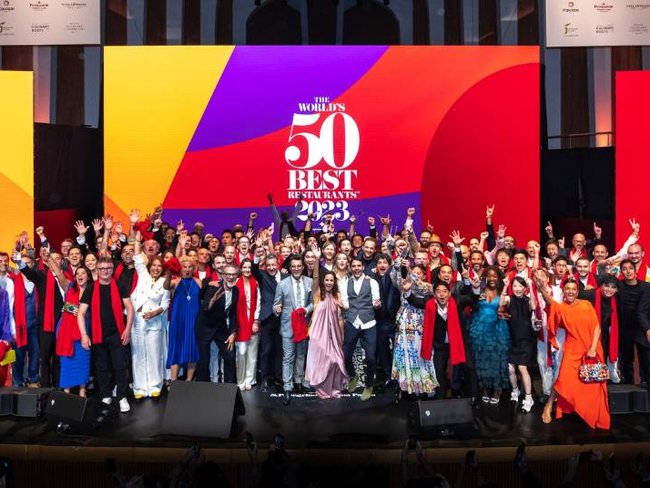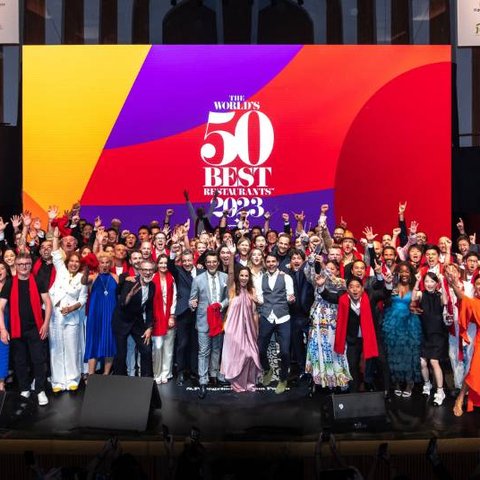This is how Orchestra Olimpia was born, with Roberta Pandolfi as Artistic Director and Francesca Perrotta as Musical Director. A true unique entity in the Italian landscape (and beyond). An example of strength and beauty, as the two founders tell us in this interview. But also an example of how Italian genius is expressed today, fighting with determination for a more equitable society, even starting with music
Genius
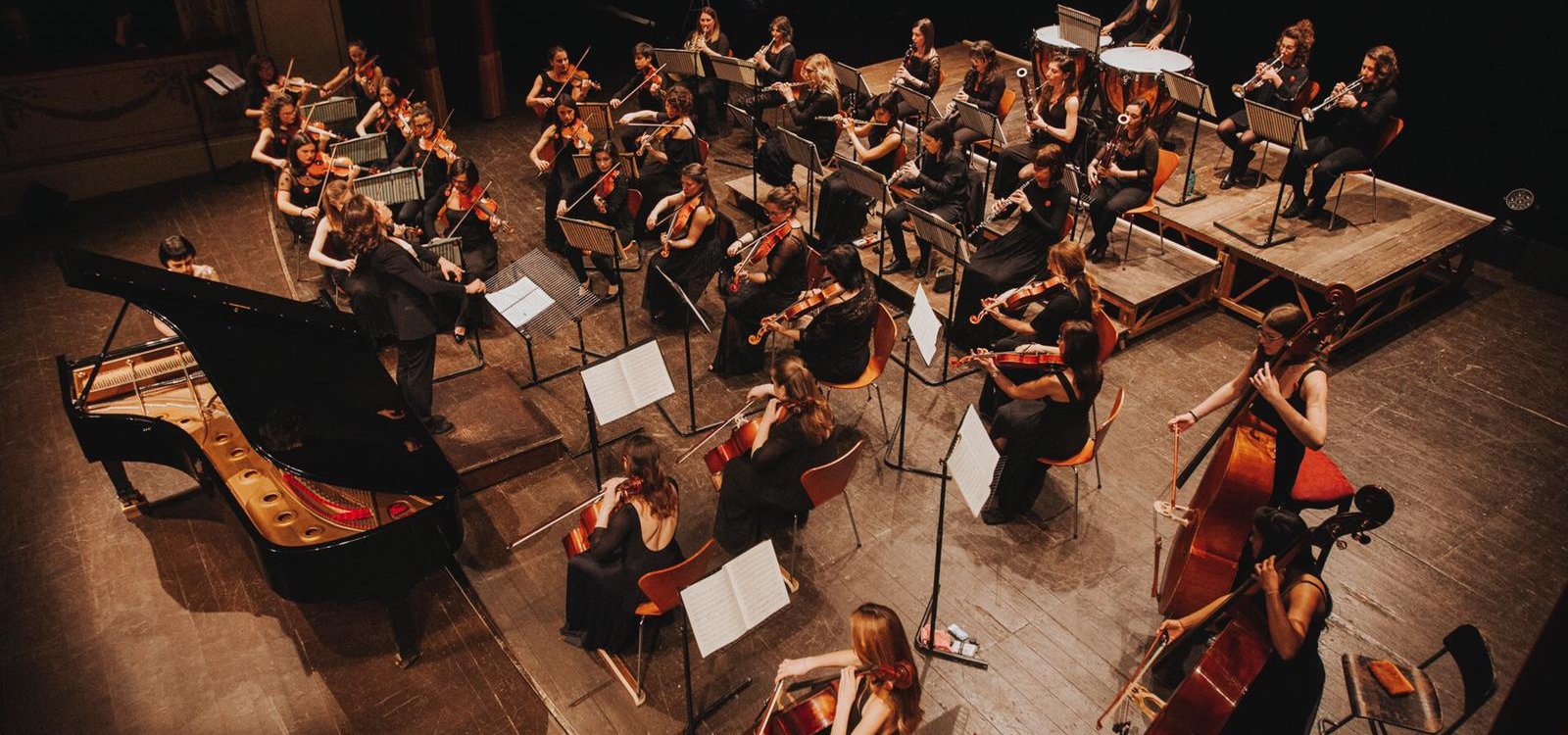
How Orchestra Olimpia was born: Interview with Roberta Pandolfi and Francesca Perrotta**
Two talented women, two musicians who want to break gender stereotypes and decide to unite many other talented women in a single great orchestra
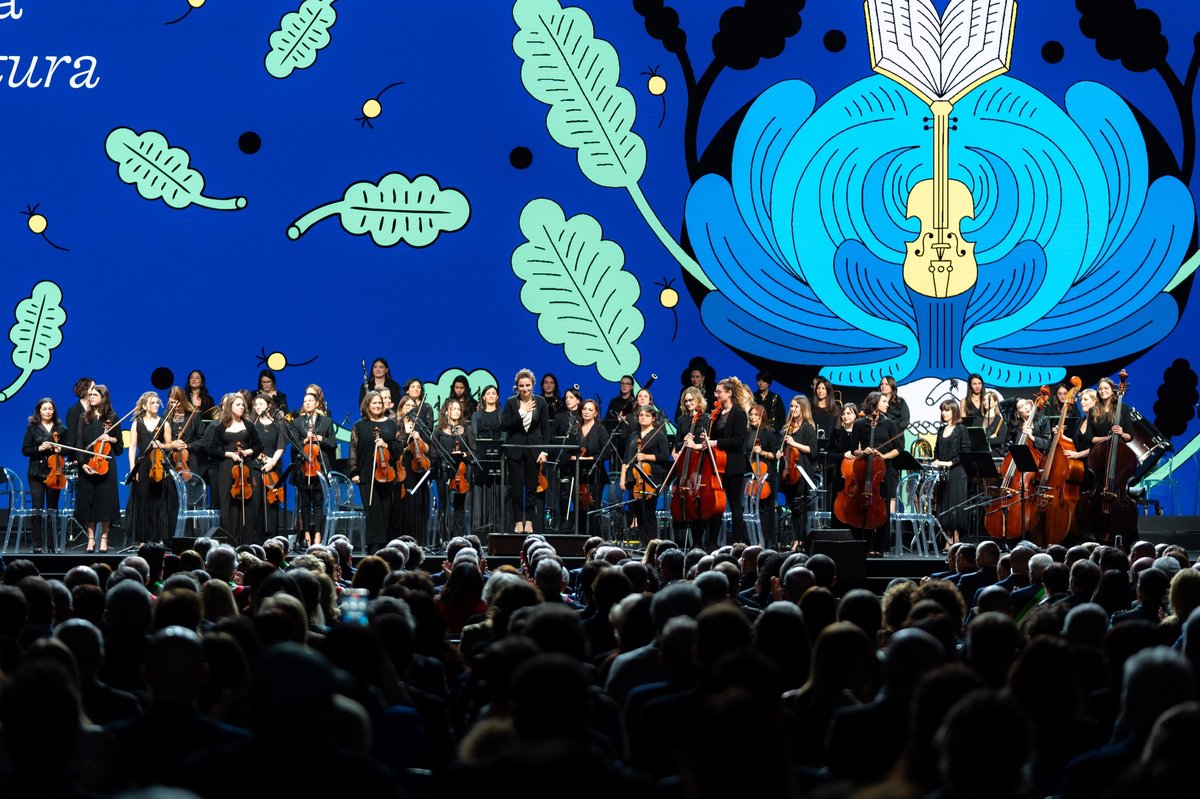
How did the idea of founding an all-female orchestra come about? And why did you choose the name "Olimpia"?
Francesca Perrotta: "The idea was born during a phone conversation between me and Roberta Pandolfi. Roberta and I knew each other before the orchestra was formed; we met during our piano studies and stayed in touch despite living in different cities. Then I pursued conducting studies and meanwhile moved to Pesaro. Once we were close, we started thinking about a project to create together. In that phone call, we were planning a charity concert, with proceeds going to a department of Medicine at the S. Orsola Hospital in Bologna. I would conduct, and Roberta would be the soloist on piano, but which orchestra? Pesaro is a city rich in orchestras, so we had to imagine something different and one we could identify with, hence the idea: Roberta said, ‘why not make it all women?’. We thought of introducing a narrator, a presenter-actress who would introduce each piece for the lay audience, and then we also involved a singer. It had to be a tribute to women, and so we debuted on International Women's Day.
I suggested the name. Olimpia was my grandmother, whom I had lost shortly before. Imagining creating a female ensemble, I wanted to find inspiration, and in that name lies the example of a tireless woman, a farmworker, humble and with a golden voice. An example of strength and beauty."
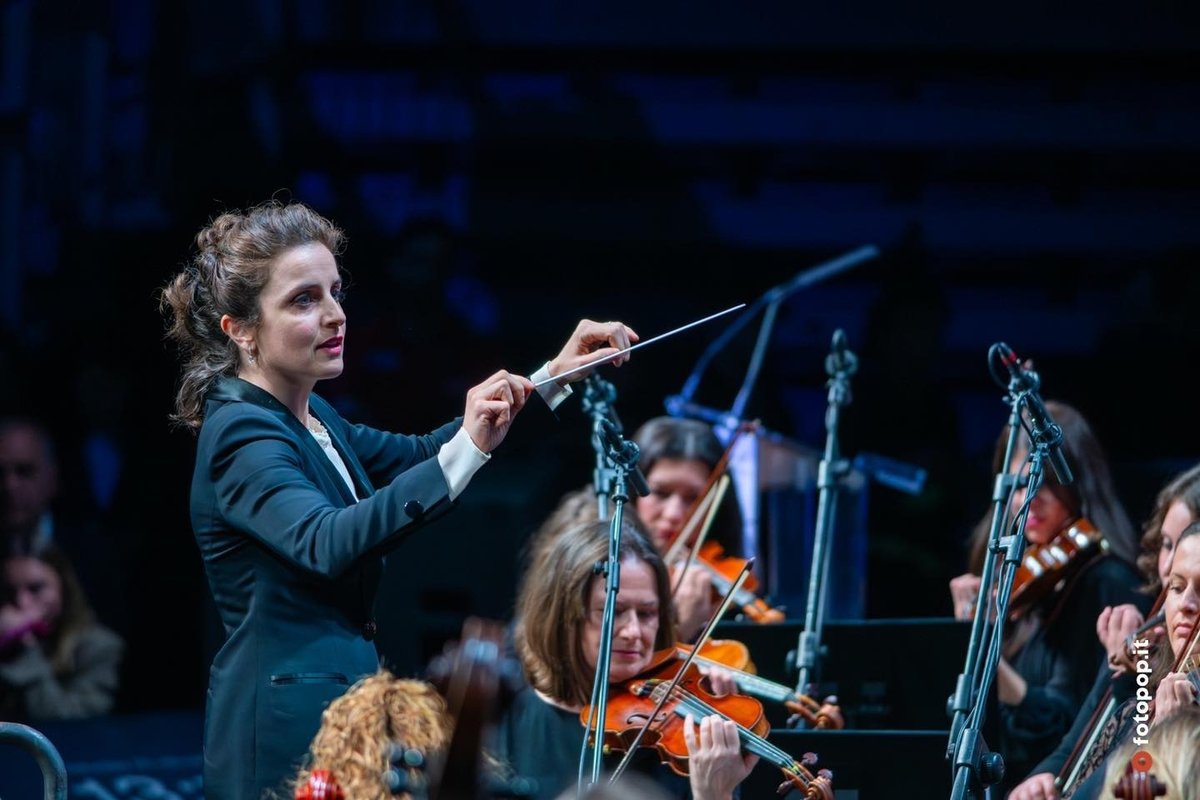
You debuted on March 8, 2019, at the Rossini Theater in Pesaro, then the pandemic hit, and on January 20, 2024, Orchestra Olimpia performed at the inauguration of Pesaro 2024 Italian Capital of Culture, in the presence of President Sergio Mattarella. A great opportunity... tell us about the journey that brought you here.
Roberta Pandolfi: "It has been a challenging journey, heavily marked by the pandemic. In 2019, we performed only twice, then returned together only in 2022. This long hiatus forced us to delve into the meaning of what was emerging. To carry out artistic direction, I had to imagine creating content that could be of interest in the web world. It was an opportunity to probe deeper into the issue of female representation in classical music, the female repertoire, and rights. These two years, consisting of some online appointments and live events with small ensembles, gave way to the planning of significant projects, such as (to name one) the encounter with the Afghan Youth Orchestra in January 2024, a historic evening where Olimpia joined the Afghan youth orchestra now refugees in Portugal.
January 20th (but also the 9th with the encounter with the Afghans) was the moment we truly began to reap the fruits of all the seeds planted in the desert of the pandemic. The working relationship between Francesca and me has consolidated over the years and matured to the point that we help each other stay on course."
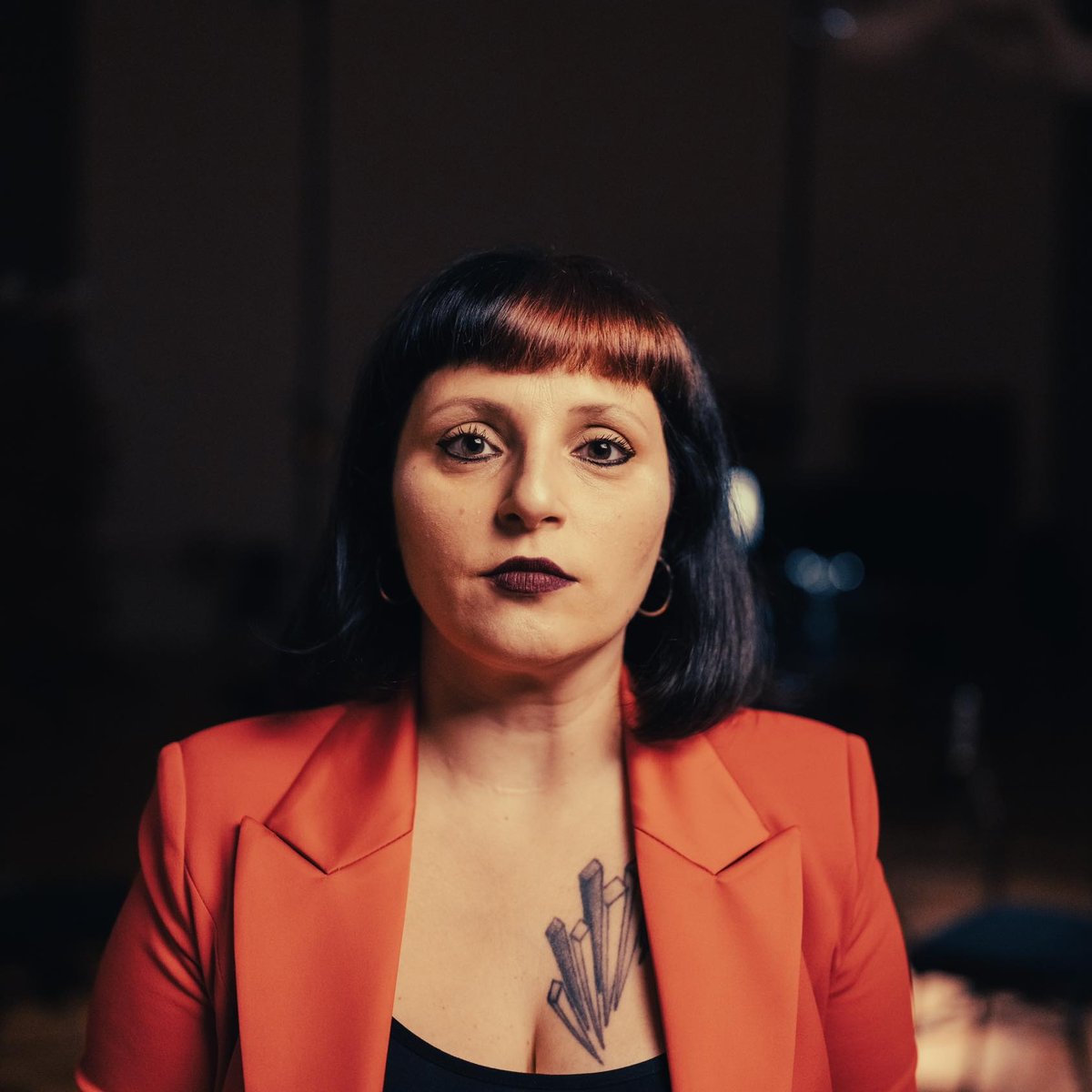
In April of this year, Orchestra Olimpia duetted with BigMama, live on Rai Radio2 for the evening “No Women, No Music,” in collaboration with the Una Nessuna e Centomila Foundation. So your focus is not just on classical music?
Roberta Pandolfi: "Our focus remains primarily on classical music, but by our own vocation, namely the promotion of the female repertoire, contemporary music is taking up more space in our programs. From this perspective and with the aim of renewing theater audiences and the perception of classical musicians (as a profession), we also welcome the fusion of completely different genres. The experience with BigMama was very important for us, a real breath of fresh air that allowed us to meet an extraordinary artist and woman and to bring our message to an increasingly broader audience with much more strength. Thanks to Una Nessuna e Centomila, we also met Vinicio Marchioni, a prepared and committed actor, one of those men we want by our side."
Among the various initiatives you are carrying out is the podcast "DiClassica," 8 episodes dedicated to female composers and musicians of classical and contemporary music. Tell us a bit about it, what is the aim of this podcast?
Francesca Perrotta: "The podcast is part of our effort to promote the repertoire written by women and lesser-known works. It was a project that required a lot of time investment, especially for the research part. The original idea was from Margherita Macrì, a professional copywriter I’ve known forever, and with whom I often imagine creating works that combine our two professions, literary and musical. This was the genesis of DiClassica, a name chosen for a podcast that tells the surprising stories of women who were too often invisible to society and who we try to bring back to the forefront.
A history of music without women would be an incomplete history. DiClassica aims to bridge a gender gap while offering the opportunity to bring music to an increasingly broad and diverse audience.
Margherita Macrì wrote the texts, Valentina Lo Surdo is the narrator, and the music is recorded by Orchestra Olimpia, arranged in various formations. Julia Wolfe, Dora Pejačević, Amy Beach, Metaura Torricelli, Chen Yi, Sophie Menter, Sofia Gubaidulina, and Sylvia Caduff are the 8 protagonists of the episodes. The last episode also features the live voice of one of them, who is still alive and whom I was fortunate enough to interview. The podcast is available on Spotify, Amazon Music, and Apple Podcasts until December 31, 2024. Be careful to type the name as one word!"
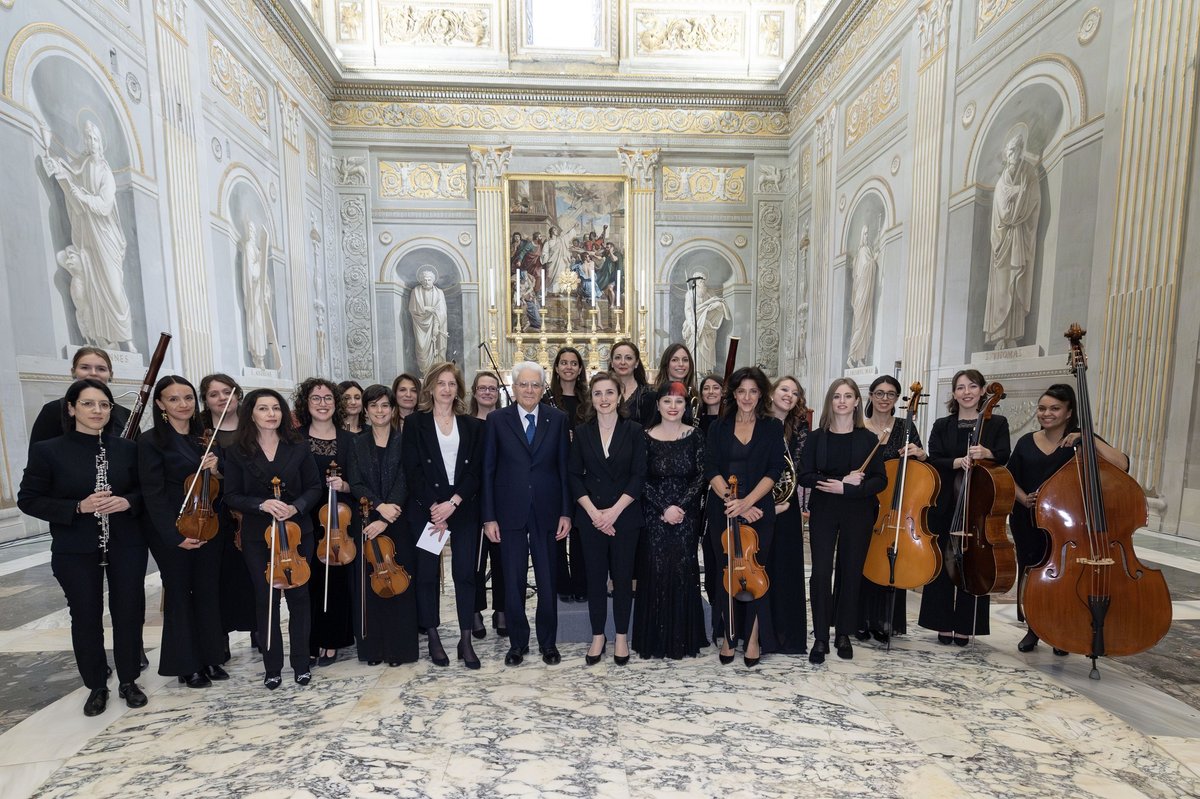
A special year for you this 2024. How has the public responded? And what has been the greatest satisfaction so far?
Francesca Perrotta: "We are receiving a lot of support and appreciation not only from the public. We are aware that a project like ours is exposed to criticism and can be attacked from many aspects, but we always try with our musical projects to create a relationship with the audience that connects our intentions with the needs of the viewer. Certainly, the greatest satisfaction was the direct call from President Sergio Mattarella, an emotion that is hard to put into words. Choosing us to close the celebrations for International Women's Day inside the Quirinale Palace is a satisfaction and pride we will hardly forget."
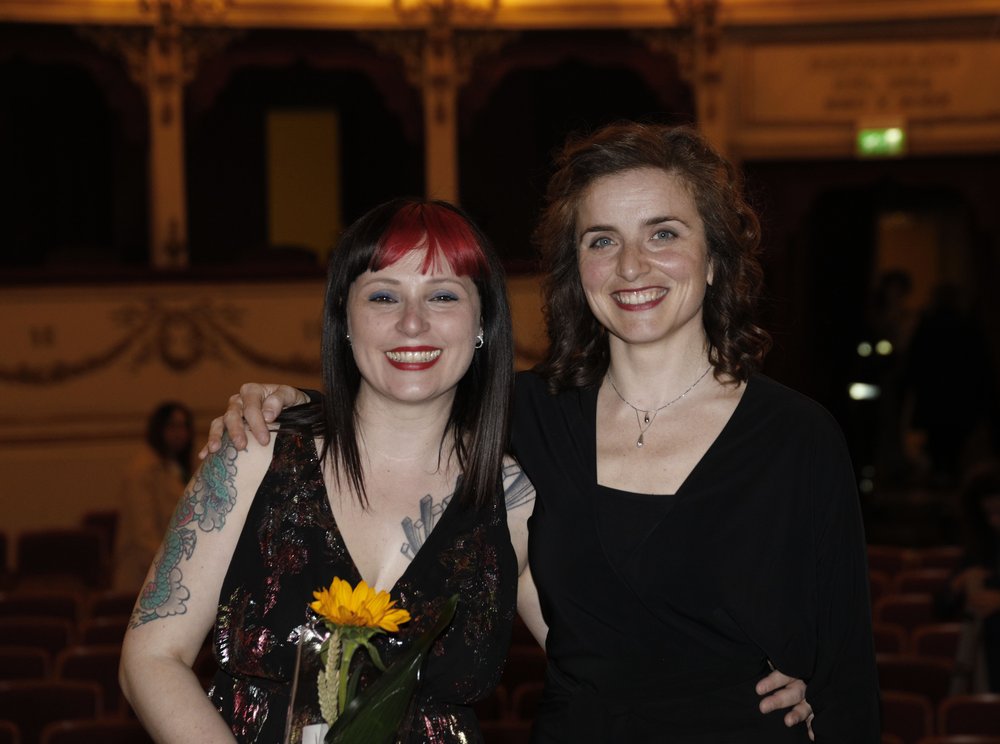
For the future, what are the projects and initiatives you are working on? Tell us, where do you want to go? What is your dream for Orchestra Olimpia?
Roberta Pandolfi: "We are planning a varied 2025, from a commission to a very important composer on a global level, a large and articulated project dedicated to music from the Shoah, several significant artistic residencies, a lot of chamber music, and more that is premature to reveal.
Our dream for Olimpia is that one day we will no longer be needed and will only be remembered as a group of women who wanted to do their small part in breaking down gender stereotypes for a more just and equitable society.
In the meantime, there is still much work to be done, so we can say: long (but hopefully short) life to Orchestra Olimpia!"
Altri articoli
-
 GeniusL’innovazione tecnologica al servizio dell'elicicoltura: la storia di Tenuta Il Nibbiodi Redazione
GeniusL’innovazione tecnologica al servizio dell'elicicoltura: la storia di Tenuta Il Nibbiodi Redazione26 November 2024 -
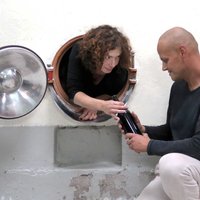 GeniusSyntropy, according to Giorgio Mercandellidi Isotta Rosboch
GeniusSyntropy, according to Giorgio Mercandellidi Isotta Rosboch11 November 2024 -
 GeniusIl nuovo rooftop bar toscano che ha dedicato la sua intera drink list al Caravaggiodi Giacomo Iacobellis
GeniusIl nuovo rooftop bar toscano che ha dedicato la sua intera drink list al Caravaggiodi Giacomo Iacobellis30 October 2024

